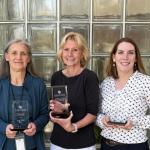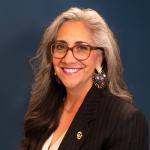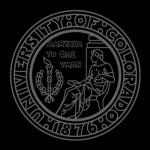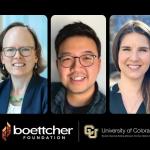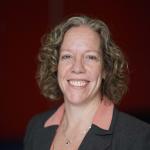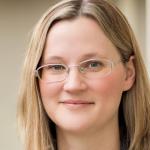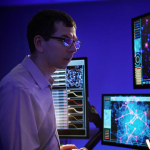Faculty Council wrapped up its meeting schedule for the academic year by celebrating the winners of its annual awards. The governance group honored council members Cindy O’Bryant and Vicky Grove with awards for Distinguished Service, while Anne Fleming received the award for Administrator of the Year. The three received their awards from Faculty Council Chair Alastair Norcross during the May 15 meeting at 1800 Grant St.
At its regular meeting in Colorado Springs on June 4, the University of Colorado Board of Regents unanimously approved a resolution condemning the June 1 attack in Boulder that injured 15 participants in a peaceful vigil supporting Israeli hostages. “This unprovoked, violent act specifically targeted the Jewish community, reflecting a broader and very troubling escalation of antisemitism in the broader community,” states the resolution.
Five University of Colorado researchers have been named to the 2025 class of Boettcher Investigators, each receiving a $250,000 grant from the Boettcher Foundation’s Webb-Waring Biomedical Research Awards Program. This year’s class, announced May 22 by the Boettcher Foundation and the Colorado BioScience Association (CBSA), represents the next generation of scientific excellence and marks another milestone in the Boettcher Foundation’s 16-year commitment to strengthening Colorado’s biomedical research ecosystem.
Sarah Wilson Sokhey, Ph.D., is an associate professor in the Department of Political Science at CU Boulder, where she also is the founding director of the Studio Lab for Undergrad Research. It matches undergraduate students with faculty projects, paying them to work with faculty mentors. The lab also hosts social events and professional training opportunities. Sokhey’s research focuses on the relationship between politics and economics, emphasizing social policies including pensions and higher education. Last year, she was named to the latest cohort of President’s Teaching Scholars at CU.
Headlines about artificial intelligence often blare big promises and underscore the breakneck pace of this evolving technology. Within the field of health care and medical research, the application of AI is likewise focused on the possibilities – only in a more measured approach. The marriage is solidly anchored in improving results for both patient and provider. “I think there are a lot of conversations about AI replacing your doctor,” said Casey Greene, Ph.D., a professor in the Department of Biomedical Informatics at the University of Colorado School of Medicine and a national expert on computational biology and artificial intelligence. “I think what gets me excited is not AI replacing your doctor. It's helping your doctor spend more time with you and less time in the chart.”


